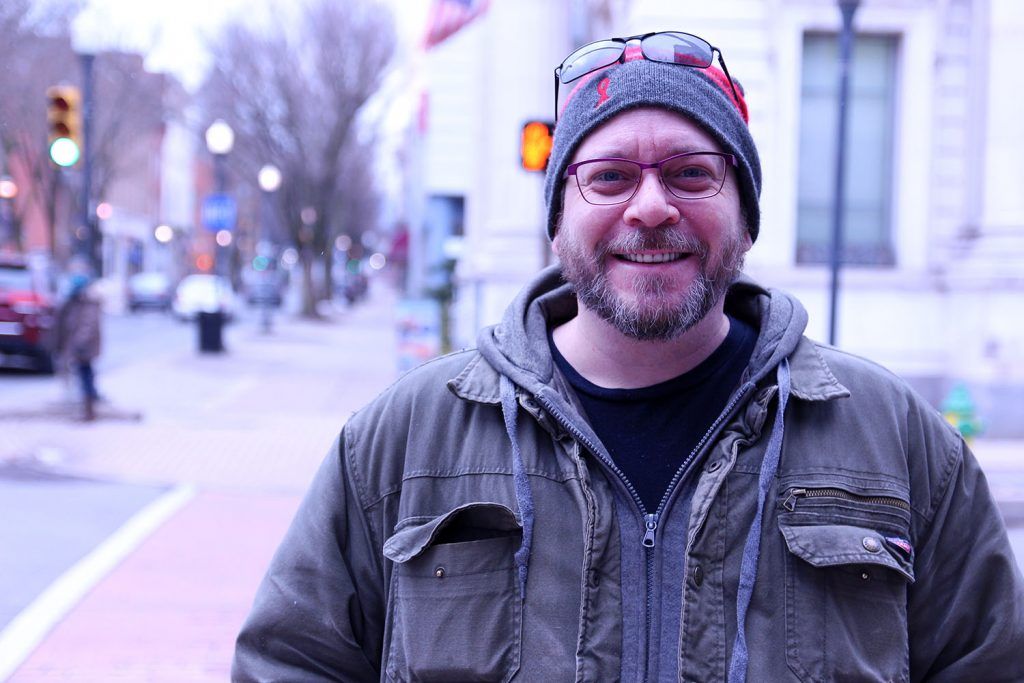
When Kent, a 66-year-old gay man, was diagnosed with HIV in 1990 he felt numb.
At a time when so much about the virus was unknown, he agonized over who to tell, both personally and professionally. Not knowing if he could transmit it to the patients he worked with at an adult day health center, he made the difficult decision to disclose his status to his supervisors. Though the supervisors applauded Kent for his bravery, they advised him not to tell other coworkers, unsure if the knowledge might somehow be used against him.
Though 30 years have passed since the HIV/AIDS epidemic was at its peak, living with the virus is still a reality for about 1.2 million Americans.
The stigma that continues to surround HIV prevents many would-be clients from reaching out for help and others from getting tested in the first place. Kent, who has been a client at Williamsport’s AIDS Resource since 2016, understands this fear. Still, he maintains that it is better to know.
“Of course people should get tested,” Kent said. “I kind of have a hard time getting my head wrapped around the fact that they (don’t), with all the information out there now.”
AIDS Resource, a nonprofit organization that serves 10 Central PA counties, has taken on the mission of serving this historically stigmatized, under-served population with an abundance of warmth, compassion, and grace.
Kirsten Burkhart, the executive director of AIDS Resource for 19 years, recalls when it only covered Lycoming County. Burkhart knew she wanted to help the financially struggling organization grow into a key player in the region’s fight against AIDS.
“I think if I knew what I was getting into, I probably would have walked away,” Burkhart admitted. “I didn’t know the odds were really stacked against us. But we just persevered.”
Over Burkhart’s time with AIDS Resource, the nonprofit has expanded the number of counties it serves as well as the variety of medical and financial assistance programs it offers. The agency, which serves roughly 165 clients, believes in taking a holistic approach with care. While STI testing and case management is a large part of what they do, disclosure assistance and sexual education — not only for clients, but for the community as well — are just as important.
For Kent, having been on the proper medication since 1995 and proudly out of the closet for years, he is comfortable sharing the diagnosis with romantic partners. He has received a variety of responses, ranging from “Me too!” to “I wish you the best, but I’ll pass.”
Even so, Kent admitted that State College, where he lives, is not the most opportune spot for an HIV+ single gay man. “Oftentimes, that prevents me from meeting people,” he said.
Living a full life with HIV
Stigma often overshadows the fact that while HIV cannot be cured, it can be well managed. With the proper medication, a patient’s “viral load” can become undetectable on standardized tests, meaning that though they still have HIV, they can no longer pass it on to sexual partners.
While the slogan “Undetectable = Untransmittable” has been supported by scientific research for over a decade, the Centers for Disease Control only put it on their website in 2019. Jay Grandis, an AIDS Resource client and local LGBTQ community organizer, says that when this announcement was made, many gay men still considered it “fake news.”
Grandis, who tested positive for HIV during a routine test in 2006, felt calm when he received the news. Having witnessed his late partner’s brother die from the virus, Grandiswas well-read on HIV and the medication, receiving an “undetectable” level within months of taking it.
Still, living in a rural area posed challenges in his dating life for a long time.
Having been with his current partner for four years, Grandis does his best to publicly challenge the stigma that has followed him for so long. In an age where HIV+ positive individuals are expected to live just as long as anyone else, Grandis says the most important thing for carriers to remember is that the virus is only one part of who they are.
“Get tested. Get on the meds. Take them all the time. Get that undetectable. Carry on with life.”


